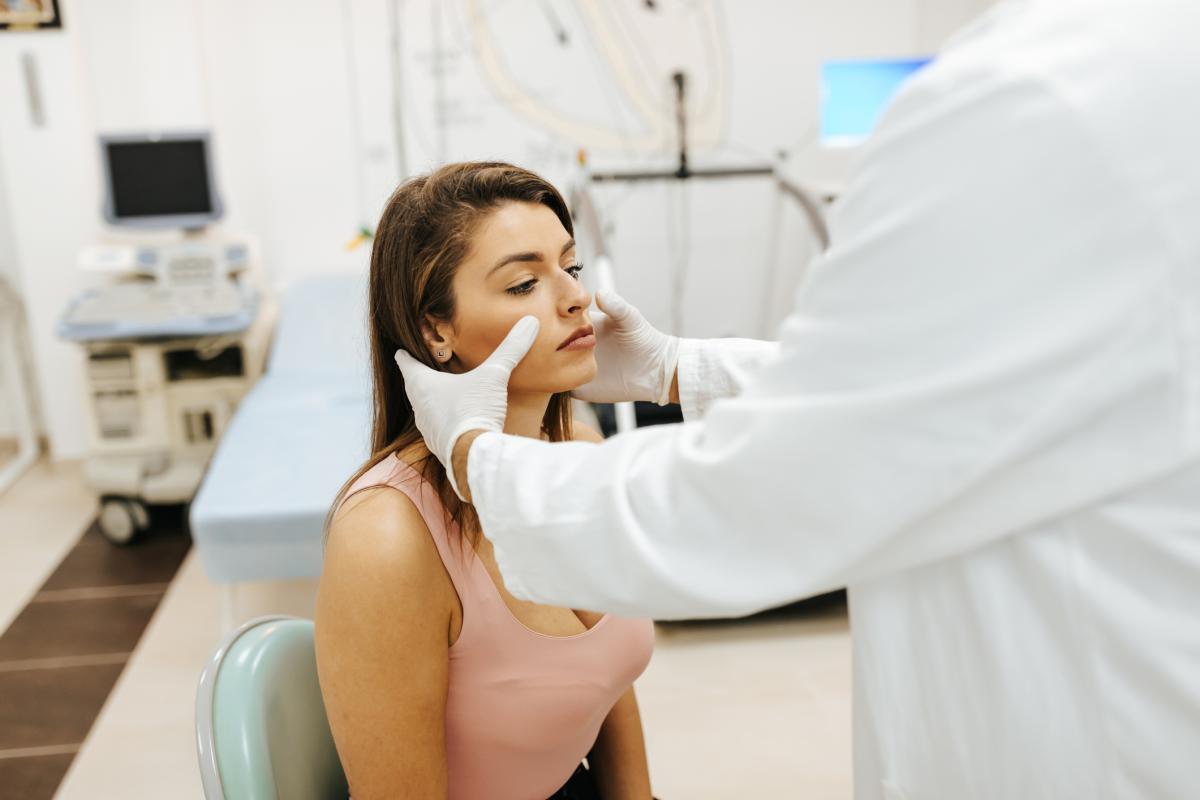Do I have a cold or sinus infection?


Now that we’re in the thick of cold and flu season, most of us expect to endure our normal share of sniffles and runny noses. But how do you know when that cold may be something more serious like a sinus infection?
You can typically expect a cold to run a course of about 10 days. If your symptoms persist or get worse, it’s fair to suspect that you may have a sinus infection. Many sinus infections begin as a cold and evolve into an infection when bacteria infect the trapped mucus in your sinuses.
Common symptoms of a sinus infection include:
- Persistent nasal drainage that is not clear and has turned a brown-gray-yellow or green hue
- A cough that’s productive
- Facial pain or pressure, headaches, fever
- Decrease in sense of smell and taste
- Inability to breathe through your nose accompanied by a fever (a cold is more likely to be accompanied by a sore throat)
There are other things that can cause a sinus infection as well. People with allergies are also prone to sinus infections and may experience similar symptoms. If your house or office has very dry air, it can cause nasal dryness and crusting, which blocks sinus openings. The mucus gets trapped in the nasal sinuses, bacteria invade, causing more swelling and blockage. A deviated nasal septum also can make a person prone to sinus infections. With a deviated septum, the bone and cartilage that divide the nasal cavity is crooked and can narrow the sinus openings.
Think You Might Have a Sinus Infection?
Make an appointment with one of our sinus specialists to get evaluated. Call us at 800-922-0000.
If your symptoms continue past 10 days, you should see your doctor or an ear, nose and throat (ENT) specialist. A sinus infection usually will not clear up on its own. In rare cases if left untreated, a bacterial sinus infection can lead to meningitis, or possibly a brain or eye abscess.
We can confirm whether you have a sinus infection in the clinic by performing a nasal endoscopy. Most people with acute sinusitis will get relief with a combination of antibiotics, decongestants, nasal steroid sprays and saline rinses. Treatment is very effective, especially if a culture has been taken and we are directing treatment at the specific invading bacteria.
If allergies are causing the sinus blockage, nasal irrigation is particularly helpful. Nasal irrigation involves pouring or spraying a saline solution into your nose to wash out mucous, relieving sinus pressure. Nasal steroid sprays and antihistamine pills are also very effective in controlling allergic rhinitis.
If your sinus infection still does not get better despite antibiotics, a procedure called endoscopic sinus surgery may be an option. This procedure involves opening the blocked sinuses with small instruments through the nostrils. This procedure is typically performed under general anesthesia in an operating room, but you will often be able to go home after your surgery. If the blockage is less severe, some patients may also be considered for balloon sinuplasty to open the blocked sinuses. This procedure involves using a balloon to dilate the sinus openings.
If you have a deviated septum, you may require surgery to straighten your septum. This procedure is typically done on an outpatient basis. Most people will be back at work a week later, and swelling will be gone within two weeks or so.
Chronic sinus infections can be painful, uncomfortable and debilitating. Our goal is to help you get better and improve your quality of life.


